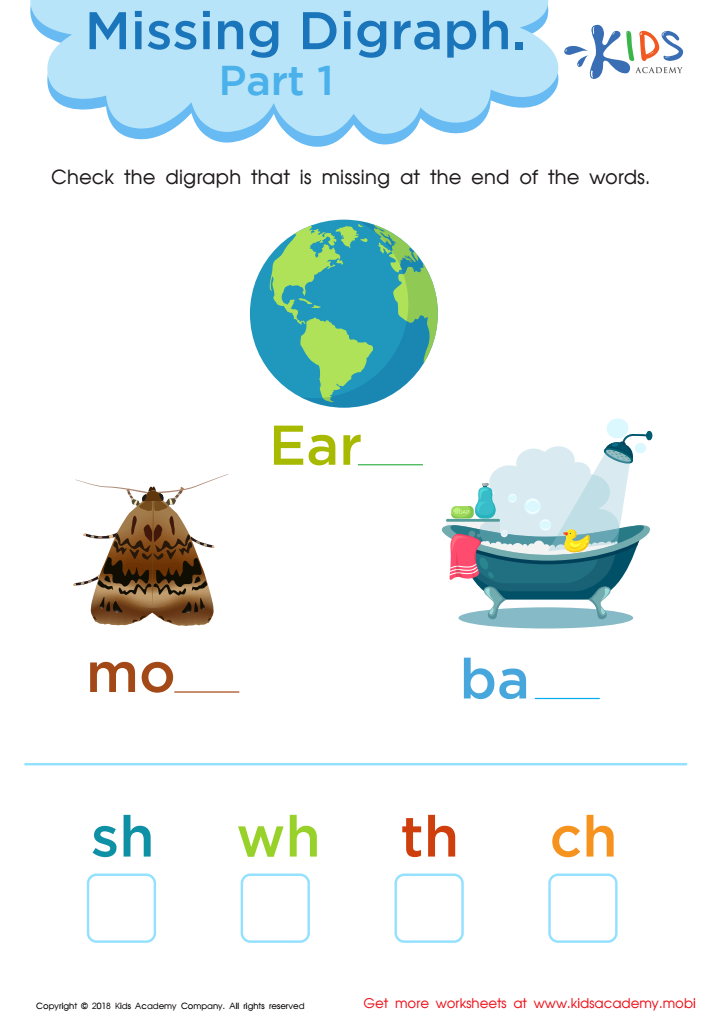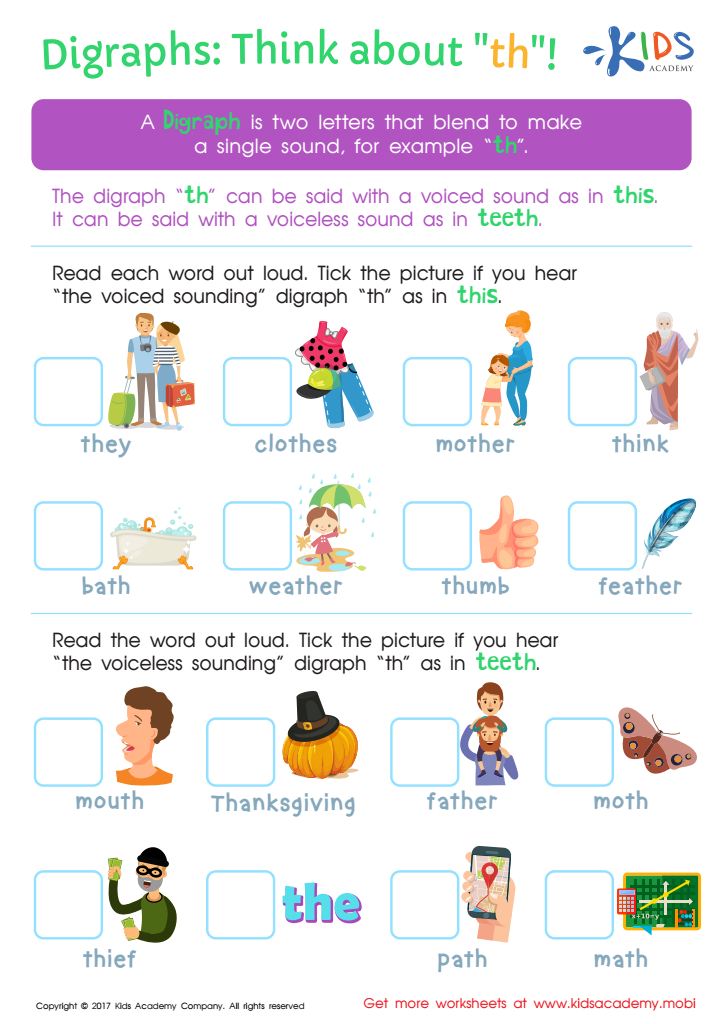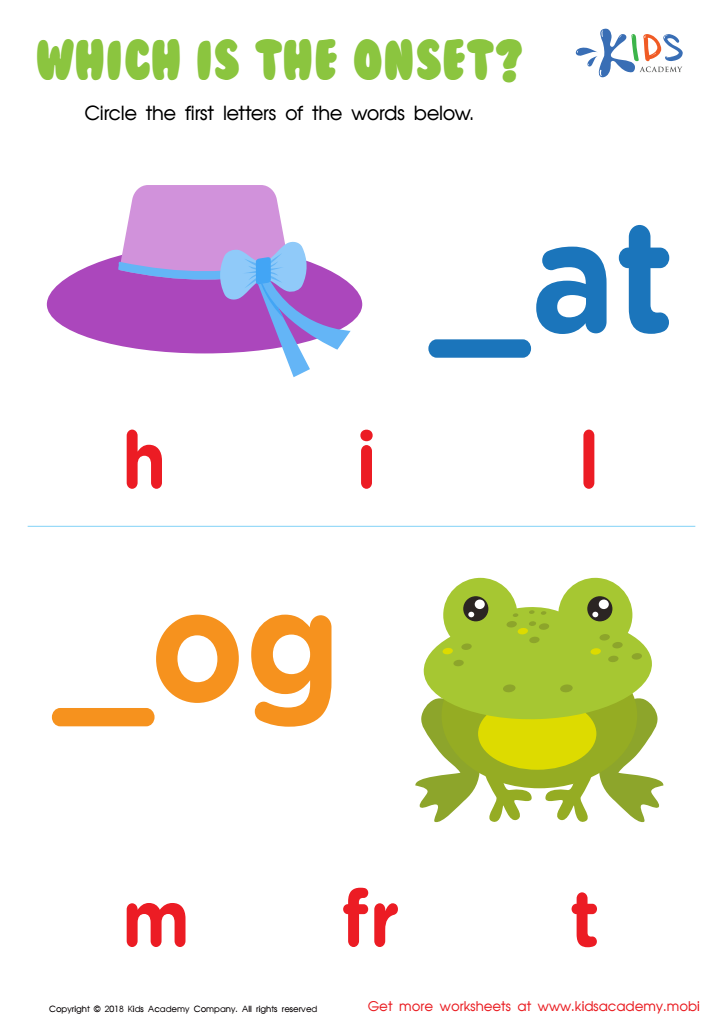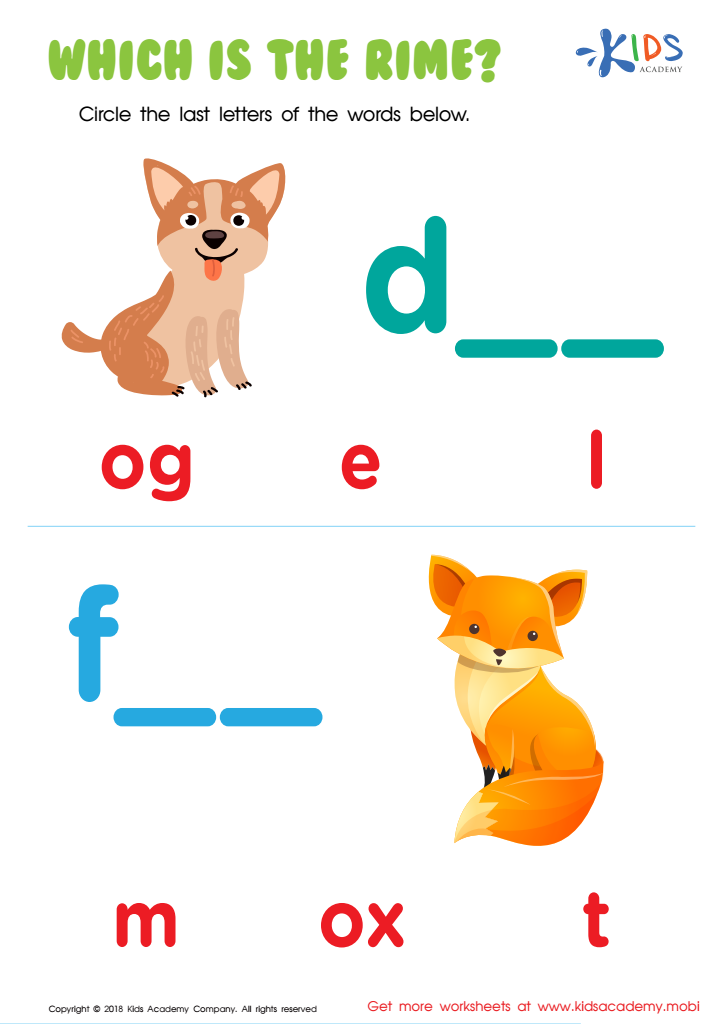Ending Sounds Worksheets for Ages 4-6
6 filtered results
-
From - To
Introducing our captivating Ending Sounds worksheets, specially designed for Ages 4-6! These educational resources are perfect for young learners beginning their journey into the fascinating world of phonics and reading. Tailored to engage and motivate children, our worksheets focus on the fundamental skill of recognizing and mastering ending sounds in words—a critical stepping stone in developing robust reading abilities. With a blend of fun activities and exercises, children will enjoy learning while they play. Dive into our Ending Sounds worksheets and watch your child's phonemic awareness and reading skills flourish. Ideal for both classroom and home use, these worksheets are your ally in setting a strong foundation for future reading success.


Missing Digraph: Part 1 Worksheet


Digraphs: Think About "th" Worksheet


Which Is the Onset? Worksheet


Twin Onset Worksheet


Phonics and Word Recognition: Assessment 1 ELA Worksheet


Which Is the Rime? Worksheet
Worksheets on Ending Sounds are specifically designed for children ages 4-6, making them an essential educational tool during a crucial period of language development. At this age, children are not only expanding their vocabulary but also refining their pronunciation and understanding of phonics, which are foundational skills for reading and writing.
The concept of ending sounds is vital because it helps young learners recognize how words are constructed and how they can change by altering these final sounds. This understanding is pivotal for decoding new words, an essential skill for early reading proficiency. By focusing on ending sounds, these worksheets cater to a targeted learning experience that is both engaging and educational for ages 4-6.
Moreover, these worksheets are designed with young learners in mind, ensuring that the activities are age-appropriate, interactive, and fun. This approach helps sustain the attention and interest of children, making learning a positive and enjoyable experience. As they work through these worksheets, children develop their listening skills, phonemic awareness, and the ability to differentiate between sounds, all of which are critical stepping stones in the journey of literacy.
In summary, worksheets on Ending Sounds for Ages 4-6 are invaluable for nurturing early literacy skills, providing a fun, focused, and foundational learning experience that prepares young children for a lifelong journey of reading and writing.
 Assign to My Students
Assign to My Students



















